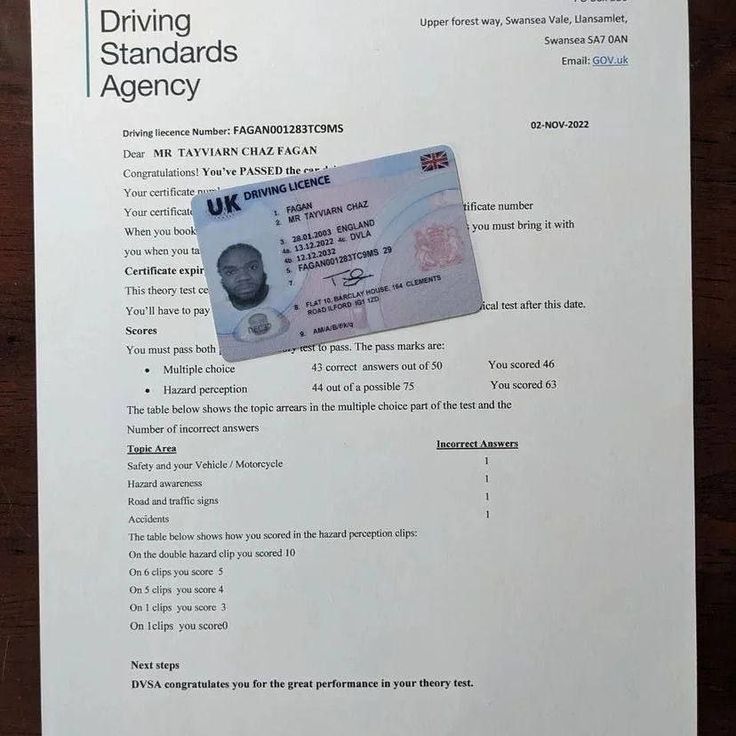Your Driving License: More Than Just a Card – Why Regular Checks Are Crucial
You probably carry your driving license with you every day, pulling it out for identification or when you get behind the wheel. But have you ever considered what vital information it holds about your driving privileges, and more importantly, when was the last time you actually checked your driving record?
A “driving license check” isn’t just about ensuring you have a physical card. It’s about verifying the validity, status, and endorsements on your driving record. Whether you’re a private citizen, a professional driver, an employer, or someone hiring a vehicle, understanding the ins and outs of a driving license check is absolutely paramount. In this comprehensive guide, we’ll dive deep into why these checks are crucial, how you can perform them, and what insights they offer, all to ensure you stay compliant, safe, and fully informed.
Why Is Your Driving License Status So Important?
For you, the driver, your license is your passport to the road. Its status dictates whether you can legally operate a vehicle, and what types of vehicles you’re authorized to drive. For others, like employers or insurance providers, your driving record is a critical indicator of your reliability and risk profile.
Let’s break down why these checks are indispensable:
- For Individual Drivers (You):
- Legality & Compliance: Simply put, driving without a valid license, or exceeding your license’s permissions (e.g., driving a category of vehicle you’re not allowed to), is illegal. Regular checks help you confirm your license is active and free from unexpected restrictions.
- Insurance Validity: Most insurance policies become null and void if you’re found driving without a valid license or with an invalid license for the vehicle you’re operating. This could leave you exposed to immense financial liability in case of an accident.
- Understanding Endorsements and Points: Do you know how many penalty points you have? Or when they expire? A check reveals this, helping you avoid disqualification and understand the impact on your driving privileges.
- Personal Safety & Awareness: Knowing your driving status empowers you to drive confidently, knowing you are fully compliant with the law.
- For Employers (If you operate a business requiring employees to drive):
- Duty of Care: Employers have a legal and moral obligation to ensure their employees are fit and licensed for their work. This extends to driving roles.
- Legal Compliance: Failing to verify that employees hold valid licenses can lead to severe legal penalties for the company, including fines and potential prosecution.
- Insurance & Liability: Your company’s insurance might not cover incidents involving an employee driving illegally. Proper checks mitigate significant financial and reputational risks.
- Road Safety: Ensuring all your drivers are properly licensed and have clean records contributes directly to a safer work environment and public roads.
- For Rental Companies & Insurance Providers:
- Risk Assessment: These entities rely on driving records to assess the risk associated with renting a vehicle to you or providing you with coverage.
- Fraud Prevention: Checks help prevent individuals from misrepresenting their driving history.
How to Perform a Driving License Check (For You!)
The process for checking your driving license status typically involves accessing a government portal or agency responsible for driver licensing in your region or country. While specific steps vary, the general principles remain:
- Accessing Official Government Portals: Most countries, like the UK (DVLA), the US (state DMVs/DMVs), Canada, and Australia, offer online services where you, the license holder, can view your own driving record.
- Required Information: You’ll usually need your driving license number, national insurance number (or equivalent), and possibly a unique code to access your record. Some systems might require you to generate a “check code” that you can then share with authorized third parties (like a rental company or employer).
- What You Can Expect to See:
- License Validity: Confirmation that your license is current and hasn’t expired or been revoked.
- Vehicle Categories: A list of vehicle types you are legally permitted to drive (e.g., cars, motorcycles, lorries).
- Endorsements and Penalty Points: Details of any driving offenses, the number of points incurred, and their expiry dates.
- Disqualifications: Information on any periods you’ve been disqualified from driving.
- Provisional Entitlements: If you hold a provisional license, it will show what you are permitted to drive under supervision.
Example Scenario (Generalized): Let’s say you’re in the UK. You would go to the GOV.UK website, navigate to the “View your driving licence information” section. You’d enter your driving licence number, National Insurance number, and the postcode on your driving licence. From there, you can view your driving record, generate a check code, or print a summary. Similar processes exist in most developed nations.
Decoding Your Driving Record
Your driving record is more than just a list of dates. It’s a dynamic summary of your driving history. Understanding what each element means is vital:
- Penalty Points (Endorsements): These are issued for specific driving offenses (e.g., speeding, using a mobile phone). Points accumulate, and reaching a certain threshold (often 12 points within a three-year period for a full license holder, or 6 points within two years of passing for new drivers) can lead to disqualification. Each endorsement has an expiry date, after which it is no longer counted towards a disqualification threshold, though it may remain on your record for longer.
- Disqualifications: This is when your license is temporarily or permanently revoked. Reasons can range from serious offenses (e.g., drink-driving) to accumulating too many penalty points.
- Vehicle Categories: These are alphanumeric codes (e.g., B for cars, A for motorcycles, C for large goods vehicles). Ensure you only drive vehicles for which you have the correct category entitlement.
When Should You Perform a Driving License Check?
While there’s no official “mandatory” frequency for you to check your own license (unless you’re an employer with specific policies), here are key times when you should consider doing one:
- Before Your License Expires: Don’t wait until the last minute! Check your expiry date and renew well in advance.
- After a Driving Offense: Always review your record to ensure the points or endorsements have been correctly applied.
- Before Starting a New Job: Especially if driving is part of the role, proactively knowing your record can save you and your potential employer hassle.
- Before Renting a Vehicle: Many rental companies will check your license, so it’s good to know your status beforehand.
- Periodically for Peace of Mind: A routine check every 6-12 months can help you stay informed and prevent any surprises.
The Benefits of Staying Up-To-Date with Your License Status
Being proactive about your driving license status offers numerous advantages:
- Avoid Fines and Penalties: Knowing your entitlements and any restrictions prevents you from inadvertently breaking the law.
- Maintain Insurance Coverage: A valid license is the foundation of your insurance policy.
- Peace of Mind: Drive with confidence, knowing you are fully compliant.
- Timely Renewals: Prevent your license from expiring, which can cause significant inconvenience.
Key Information Revealed by a Driving License Check
| Information Category | What It Tells You | Why It’s Important |
|---|---|---|
| Licence Status | Valid, Expired, Revoked, Suspended, Provisional | Determines if you can legally drive at all. |
| Expiry Date | When your physical licence and entitlements run out | Crucial for timely renewal; driving with an expired licence is illegal. |
| Vehicle Categories | Which types of vehicles you are legally allowed to drive (e.g., B, A, C) | Prevents you from driving vehicles you’re not qualified for. |
| Endorsements/Points | Details of driving offenses, penalty points, and their accumulation/expiry dates | Indicates your driving history and risk of disqualification. |
| Disqualifications | Any periods during which you are banned from driving | Absolutely essential to know, driving while disqualified carries severe penalties. |
| Driving Restrictions | Specific conditions (e.g., must wear corrective lenses, automatic vehicles only) | Ensures you adhere to necessary safety or legal requirements. |
| Issue Date | When your current licence was issued | Useful for verifying identity and tracking licence history. |
Potential Penalties for Driving Without a Valid Licence / Serious Driving Offences
Understanding the potential repercussions highlights the importance of regular checks. Note: Penalties vary significantly by jurisdiction.
| Offence Category | Typical Consequences (Illustrative – Varies by Region) |
|---|---|
| Driving Without a Valid Licence | Fines (often substantial), penalty points, vehicle impoundment, potential driving ban, invalid insurance leading to personal liability for damages. In severe cases, particularly if repeat offender or involved in an accident, custodial sentences are possible. |
| Driving While Disqualified | Severe fines, extended disqualification periods, community service, imprisonment (common in many jurisdictions), vehicle impoundment. This is considered a very serious offence. |
| Driving Without Insurance | Often accompanies driving without a valid licence. Large fines, penalty points (e.g., 6-8 points), confiscation of vehicle, prosecution. |
| Driving Wrong Vehicle Category | Fines, penalty points (can be similar to driving without a licence). Your insurance may also be invalidated. |
| Failure to Notify Change of Address | While less severe, it can result in fines and administrative issues (e.g., missing renewal notices or court summons). |
Frequently Asked Questions (FAQ)
Q1: How often should I check my driving license status? A1: While there’s no strict rule for personal checks, we recommend doing so at least once a year, or whenever you get points, before your license expires, or before starting a new job that requires driving.
Q2: What if I have penalty points on my license? A2: Penalty points indicate you’ve committed a driving offense. They remain on your record for a specific period (e.g., 3 or 4 years, depending on the offense type) and count towards a potential disqualification threshold. Too many points within a certain timeframe (e.g., 12 points in 3 years for experienced drivers) can lead to your license being revoked.
Q3: Can someone check my license without my permission? A3: Generally, no. In most jurisdictions, personal data, including your driving record, is protected. Employers, rental companies, or insurance providers will typically require your explicit consent and specific information (like a unique sharing code) to access your record.
Q4: What’s the difference between a provisional and a full license? A4: A provisional license allows you to drive certain vehicles under specific conditions (e.g., with a qualified supervisor, displaying ‘L’ plates). A full license, obtained after passing the necessary driving tests, grants you full driving privileges for the categories you’ve passed, without such restrictions.
Q5: What happens if my driving license expires? A5: Driving with an expired license is illegal and can result in fines, penalty points, and invalidate your vehicle insurance. It’s crucial to renew your license before it expires.
Q6: Do I need an International Driving Permit (IDP)? Q6: An IDP is a special permit that allows you to drive in foreign countries when accompanied by your valid domestic driving license. It verifies that you hold a valid driving license in your home country and translates your driving entitlements into several languages. You generally need one for countries where your domestic license is not recognized or where the official language is different from your own. Always check the specific requirements of the country you plan to visit.
Your Road to Compliance and Confidence
Your driving license is more than just a piece of plastic – it’s a dynamic document reflecting your legal permission to drive and your history on the road. By making regular driving license checks a part of your routine, you’re not just adhering to the law; you’re actively ensuring your safety, protecting your financial well-being, and maintaining your peace of mind. So, take a moment today to understand your driving status – it’s a small check that can make a huge difference!

